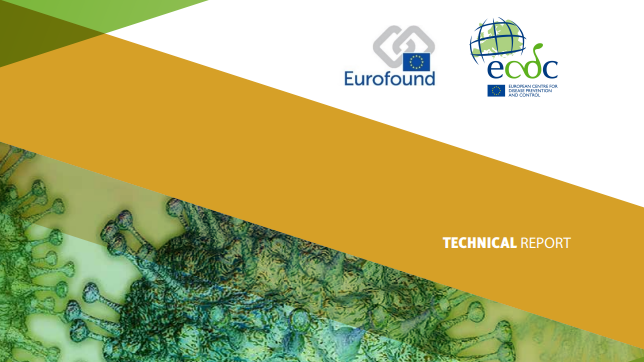
News -
Investment in social services underpinned resilience of European societies during COVID-19
The EU’s financial commitment to social issues - with government spending on social services such as social protection, education and health claiming a significant 35% of GDP in 2020 - underpinned its resilience to the economic shock of the COVID-19 pandemic. Social services provided vital assistance and a network for people to get through the extraordinary limitations they faced in their daily lives.
Eurofound’s new report Social services in Europe: Adapting to a new reality addresses the impact of the COVID-19 crisis on social services in the EU. While the pandemic negatively affected social services, it nevertheless provided lessons on how to adapt them in response to new challenges and social risks. One lesson, for instance, is that policies should be developed to make better use of digitalisation in the sector, to improve access to new technologies and training for both workers and services’ target groups. And, most importantly, there is a need for clear contingency plans and funding for adaptation in times of crisis.
The report notes that an increase in public expenditure on social protection, healthcare and education was a critical part of the pandemic response. However, there is uncertainty about the future development of social services in the context of the overarching policy interest and investment in the green and digital transition. This implies that the contribution of social services to the resilience of European societies needs to remain in the policy debate and that policies should be further fine-tuned.
Structural issues such as staff shortages, poor working conditions and lack of digitalisation limited the ability of social services to deliver on their mission during the pandemic, and many services, ill-prepared for COVID-19, struggled to reorganise their operations. Unless these structural issues – many linked to jobs in social services that are strained, stressful and under-resourced – are urgently addressed, they will persist into the future.
A lack of digitalisation in the social services sector results in staff missing out on opportunities for training and upskilling. Around a fifth of workers in social care in the EU never use digital devices in their work. This must be tackled if the sector is to deal with future challenges, as digitalisation emerged as especially critical during the pandemic when digital devices were key to communication.
The COVID-19 pandemic, despite the difficulties it caused, provided a valuable impetus for the development of social services. Great efforts, even if improvised, were made to organise work remotely and to provide services and support in new ways, as evidenced by the numerous helplines and apps. The value of nurturing collaboration with stakeholders and primary (informal) carers also became clear. However, it is not yet obvious how the lessons learned are being carried through, and applying the lessons must be a priority for stakeholders and decision-makers if the sector is to meet future challenges effectively.
The report highlights that the Recovery and Resilience Facility (RRF) for social services has the potential to boost change and modernisation in social services provision, funding that may not be otherwise available. It should be utilised fully in this regard, especially in Member States where the share of RRF funding is most substantial, such as those with lower GDP and higher unemployment.
Read the report:







